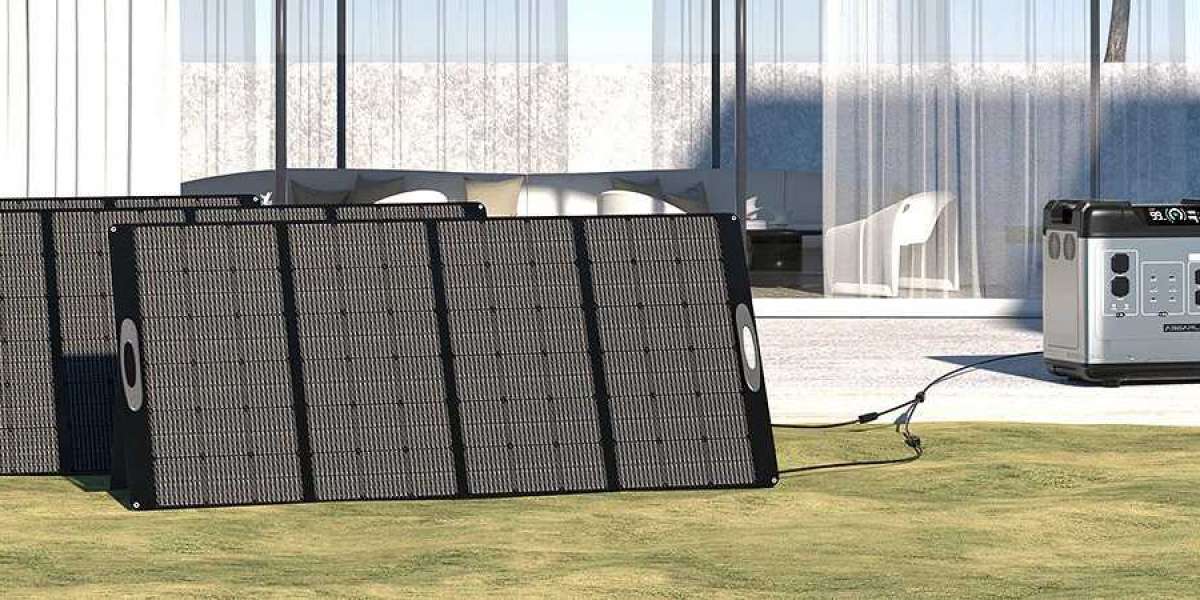Solar generators are an increasingly popular solution for powering small appliances, especially in scenarios where traditional power sources are unavailable or unreliable. Whether you're looking for a clean energy option for camping, an emergency backup during power outages, or a way to run small appliances in an off-grid setting, solar generators offer a versatile and eco-friendly alternative. In this article, we'll explore the benefits of using solar generators for small appliances, how they work, and what to consider when choosing the right solar generator for your needs.
1. Understanding Solar Generators
A solar generator consists of three main components: solar panels, a battery, and an inverter. Here's how each part works together to power your small appliances:
Solar Panels: These capture sunlight and convert it into direct current (DC) electricity. The efficiency and size of the solar panels will determine how quickly the generator can charge and how much power it can generate.
Battery: The electricity generated by the solar panels is stored in a battery. The capacity of the battery, measured in watt-hours (Wh), determines how much energy is available to power your appliances.
Inverter: The inverter converts the DC electricity stored in the battery into alternating current (AC) electricity, which is what most small appliances use. The wattage of the inverter dictates the maximum power output the generator can provide at any given time.
2. Benefits of Solar Generators for Small Appliances
Using solar generators to power small appliances comes with several advantages, making them an attractive option for various applications.
Eco-Friendly: Solar generators produce clean, renewable energy with no emissions, making them an environmentally friendly choice compared to gas-powered generators.
Quiet Operation: Unlike traditional gas generators, solar generators operate silently, which is especially beneficial in quiet environments like campgrounds or residential areas.
Portability: Many solar generators are designed to be lightweight and compact, making them easy to transport and set up wherever you need power.
Low Maintenance: Solar generators require minimal maintenance compared to gas generators, with no need for fuel, oil changes, or engine upkeep.
Cost-Effective: While the initial investment may be higher, solar generators can save you money in the long run by eliminating fuel costs and reducing wear on appliances through clean, stable power delivery.
3. Choosing the Right Solar Generator
When selecting a solar generator for powering small appliances, consider the following factors to ensure it meets your needs.
Power Output (Wattage): Determine the wattage requirements of the appliances you intend to power. Common small appliances include laptops (40-80W), LED lights (5-10W), portable fans (10-20W), and small refrigerators (60-100W). Choose a solar generator with a power output that exceeds the combined wattage of your devices to ensure reliable operation.
Battery Capacity: The battery capacity, measured in watt-hours (Wh), dictates how long the generator can power your appliances. For example, a 500Wh generator can theoretically power a 50W appliance for 10 hours. Consider your energy needs and choose a generator with sufficient capacity to last through your planned usage.
Portability: If you plan to use the generator for outdoor activities or on-the-go power, consider its size and weight. Compact, lightweight models are ideal for camping, while larger units may be better suited for home backup or off-grid living.
Solar Panel Compatibility: Ensure that the solar panels you use are compatible with the generator. Some generators come with built-in solar panels, while others require external panels. Check the wattage and type of connector to avoid compatibility issues.
Recharge Time: The time it takes to recharge the generator varies depending on the solar panel wattage and sunlight conditions. Some generators can also be recharged via AC power or a car charger for added convenience.
Number of Outlets: Consider the number and type of outlets available on the generator. Common outlets include AC plugs, USB ports, and 12V car sockets. Make sure the generator has enough outlets to accommodate all your devices.
4. Popular Applications for Solar Generators
Solar generators can power a wide range of small appliances in various settings. Here are some common applications:
Camping and Outdoor Activities: Solar generators are perfect for powering small appliances like lights, fans, portable coolers, and mobile devices while camping. Their portability and quiet operation make them an excellent choice for outdoor enthusiasts who want to enjoy nature without sacrificing comfort.
Emergency Backup: During power outages, solar generators can keep essential small appliances running, such as medical devices, communication equipment, and refrigeration for medication. Their ability to recharge from the sun ensures continuous power during extended outages.
RVing and Van Life: For those living the RV or van life, solar generators provide a reliable power source for appliances like small refrigerators, water pumps, and entertainment systems. They allow for extended stays off-grid without the need for noisy, polluting gas generators.
Home Office: Solar generators can power home office equipment like laptops, routers, and monitors, ensuring you stay connected and productive even during power interruptions.
Off-Grid Living: For those who choose to live off the grid, solar generators offer a sustainable solution for powering essential small appliances. They can be integrated into a larger solar power system or used as a standalone power source.
5. Maximizing the Efficiency of Your Solar Generator
To get the most out of your solar generator when powering small appliances, consider the following tips:
Optimize Solar Panel Placement: Position your solar panels in direct sunlight, free from obstructions, to maximize energy generation. Adjust the angle of the panels throughout the day to follow the sun's path.
Conserve Energy: Use energy-efficient appliances and turn off devices when not in use to extend the runtime of your generator. LED lights, for example, consume significantly less power than incandescent bulbs.
Monitor Battery Levels: Keep an eye on your generator's battery level and recharge it as needed. Avoid letting the battery run completely dry, as this can shorten its lifespan.
Use Power Strips: Connect multiple low-wattage devices to a power strip to efficiently manage your generator's power output and avoid overloading individual outlets.
Conclusion
Solar generators are an excellent solution for powering small appliances, offering a clean, quiet, and portable alternative to traditional power sources. By choosing the right generator and using it efficiently, you can enjoy reliable power in a variety of settings, from camping trips to home offices. Whether you're looking for a backup power source or a way to reduce your carbon footprint, a solar generator is a smart investment that provides both convenience and sustainability.








